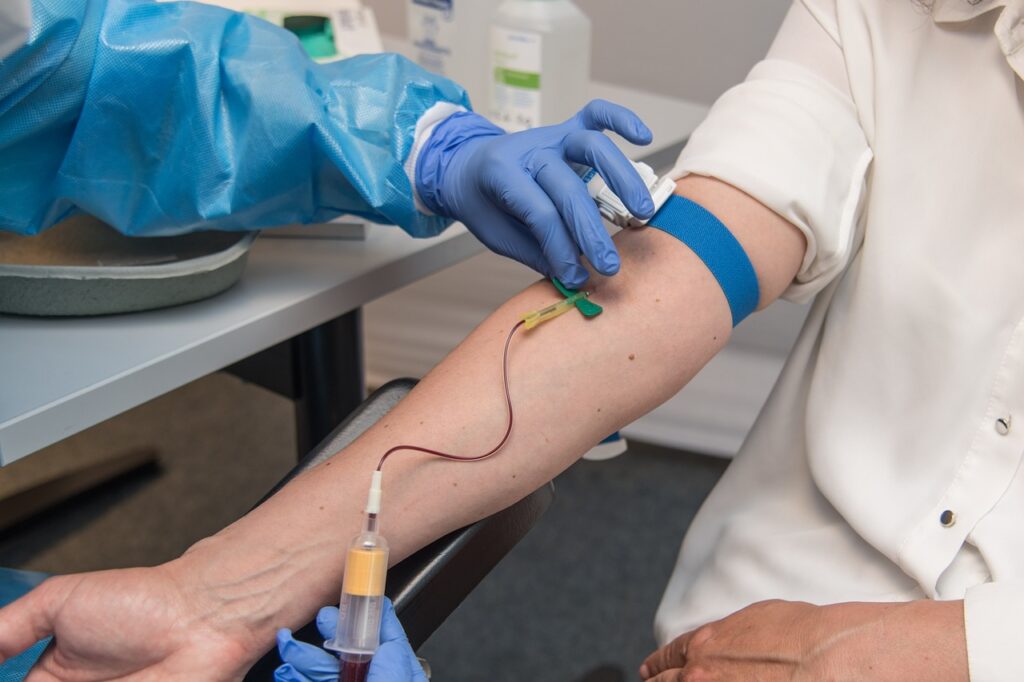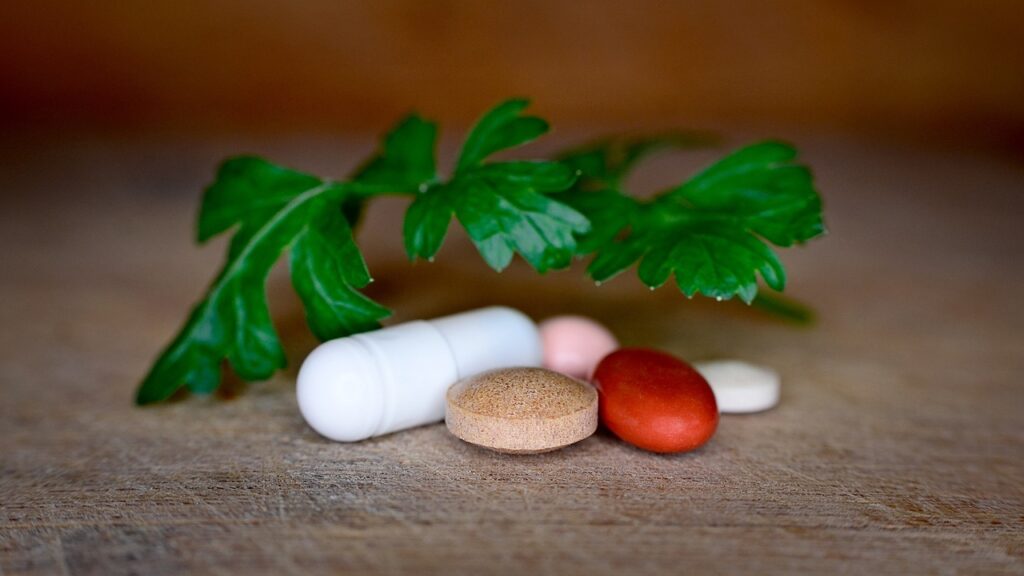There’s a lot of research and evidence out there that supports the fact that eating a “plant based” diet is “healthy”.
It will help lower your cholesterol, reduce your risk of heart disease, stroke, and diabetes, etc, etc…
I didn’t choose a “plant based” diet for those reasons though. In fact, I thought people who didn’t eat meat were crazy and couldn’t possibly be “healthy” since they were eliminating an essential protein from their diet.
Instead, I chose a vegan diet for ethical reasons that were triggered by my general love for animals.
Nonetheless, I was curious: given all of this talk about vegan and plant-based diets being “healthy”, am I “healthy”? Am I a living, breathing example of what all of this research suggests?
After 3 years of eating vegan, I decided it was time to find out. I made an appointment with my Doctor, got some blood work done, and checked out my test results.
Here, I’ll share with you what I found:
I don't have diabetes
The hemoglobin A1c test determines if you have diabetes or are at risk of having diabetes.
I honestly had never heard of this test, until several members of my family started reporting that they were “pre-diabetic”, meaning that they were at risk of having diabetes. They all mentioned getting this “A1c” test and constantly checking it to monitor their diabetes.
The test itself “measures the percentage of your red blood cells that have sugar-coated hemoglobin” (source). Everybody has some sugar in their hemoglobin, but too much is no good.
If your % result is more than 6.5%, then you’ve got diabetes.
Between 5.7 and 6.4%, and you’re at risk of getting diabetes.
Less than 5.7%, and you don’t have and are not at risk of getting diabetes.
My test results show that I am at 5.3%.
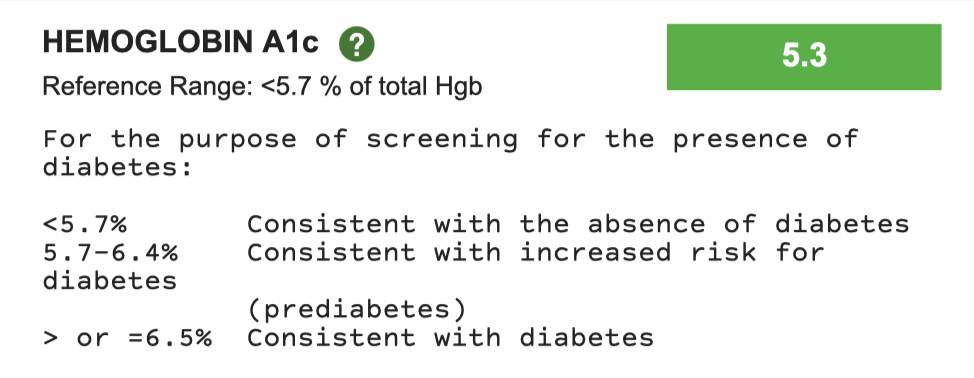
So, no I am not pre-diabetic like my family members (who are not vegan), which is a huge relief, as I was starting to think that I was destined to be.
My thyroid gland is doing what it's supposed to do
The TSH test is an indicator of your thyroid gland’s health. It specifically measures how much Thyroid stimulating hormone (TSH) is present in your blood.
Too much or too little of TSH is associated with hypothyroidism and hyperthyroidism, respectively. Both hypothyroidism and hyperthyroidism mean that your thyroid is essentially not doing a great job at what it’s supposed to be doing, which is managing your body’s hormones and metabolism.
A normal range of TSH is somewhere between 0.4 and 4.5 mIU/L. My levels are at 3.12 mIU/L, which is within the normal range.

I'm eating enough iron
A Complete Blood Count (CBC) test checks your red and white blood cell counts, platelet and hemoglobin levels, amongst other things.
The red blood cell count though is specifically used to test for anemia, or iron deficiency.
This is something I was curious about, as I read early-on that going vegan meant eating plant-based sources of iron, and plant-based sources of iron do not absorb very well in the body, which can lead to an iron deficiency.
Fortunately, there is a way to increase your plant-based iron absorption rate by eating plenty of vitamin C. So I have always consciously ensured that my iron-rich vegan meals also had a vitamin C-rich source paired with it.
Fortunately, the results of my CBC test shows that my red and white blood cell counts are normal.
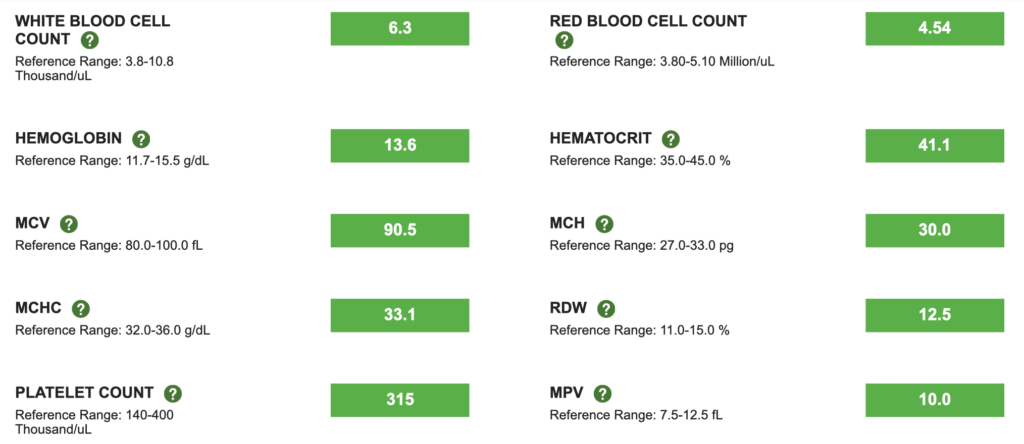
Which comes at a relief and validates 2 things:
- I am eating enough iron in my vegan diet, and
- I am eating enough vitamin C to aid in my body’s absorption rate of plant-based iron.
I'm not at risk for a heart attack, stroke, or heart disease
Your cholesterol levels determine If you are at risk of having a coronary heart disease, heart attack or stroke.
Too much of the “bad” cholesterol (LDL) could indicate a build-up of plaque in your blood vessels which can lead to a heart attack or stroke.
Too little of the “good” cholesterol (HDL) means that your body is less able to carry the “bad” cholesterol away from your blood vessels to prevent that heart attack or stroke.
Your liver produces a healthy dose of “good” and “bad” cholesterol naturally, and it’s typically the presence of high saturated foods (which primarily come from meat, dairy, and other animal sources) that would cause an imbalance of “good” and “bad” cholesterol.
That’s why I wasn’t surprised when I saw my cholesterol levels, which were all normal.
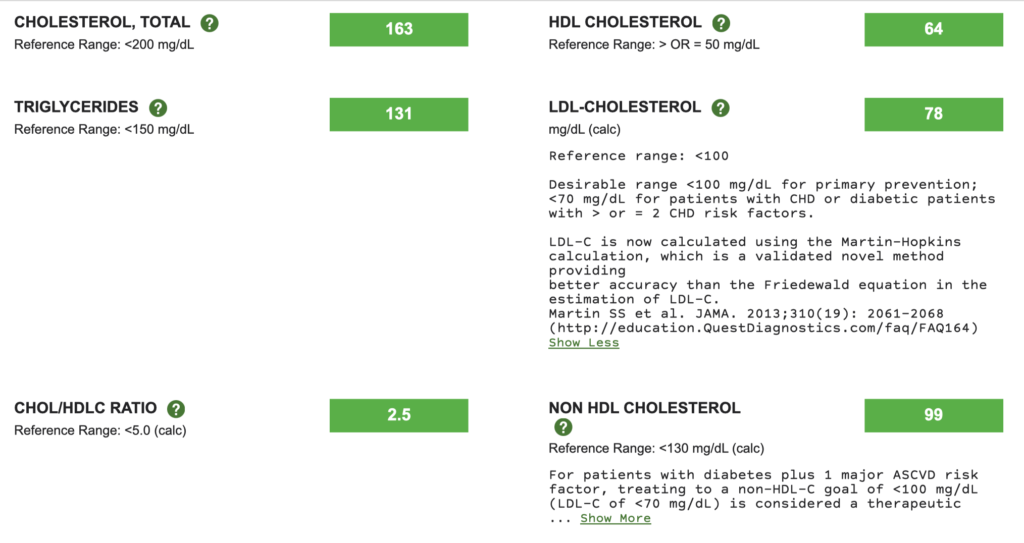
Being on a vegan diet means not eating any meat or animal sources, and without those animal sources in my system, my cholesterol levels are less at risk of getting out of control and screwing up my blood vessels and heart function.
I'm getting the right amount of nutrition through my diet
The comprehensive metabolic panel (CMP) test is a general screening indicator of your liver and kidney function, as well as your general metabolism.
All of my CMP results were in the normal range, which means that my liver and kidneys are functioning properly:
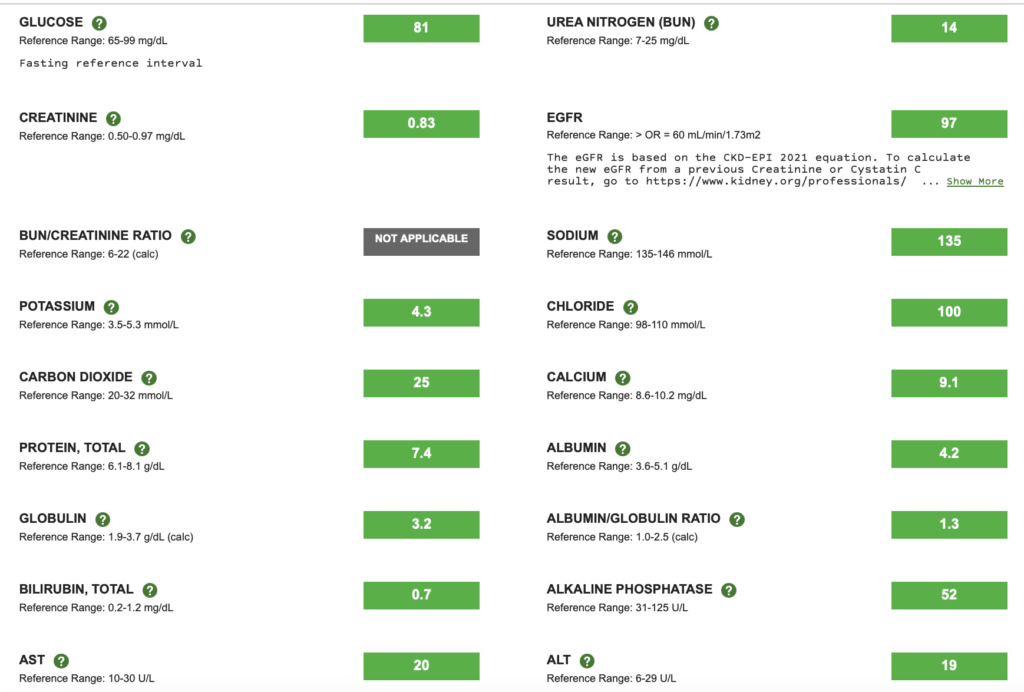
And my vitamin D test (which needs to be ordered separately, as it is not included in the CMP) was normal as well.
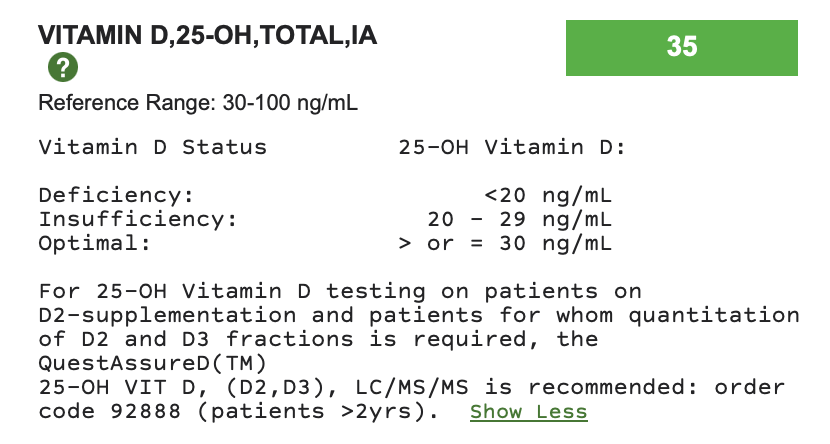
As your Vitamin D, Calcium, and Protein levels are influenced by your diet, these results specifically justified that I have been making the right decisions about what vegan foods I put in my body.
I always ensure I eat a high-protein diet, and I specifically look for vegan sources of vitamin D either in enriched or natural vegan foods to aid in my body’s absorption rate of calcium (as calcium depends on vitamin D to be properly used by the body).
These test results definitely made me feel like all of the research I have done around vegan nutrition have paid off, and makes me feel like I am eating vegan the “right way”.
The takeaway
Looking at my blood tests, it seems that these studies about plant-based and vegan diets being “healthy” are true. All of my blood work came back normal, and my levels indicate that I am incorporating the right kinds of nutritious foods in my diet to support my body’s metabolism and overall health.
So after 3 years of being vegan, I think it is fair to conclude that I am “healthy” and that I have been able to successfully maintain a comprehensively healthy vegan diet.
